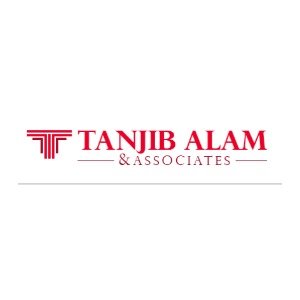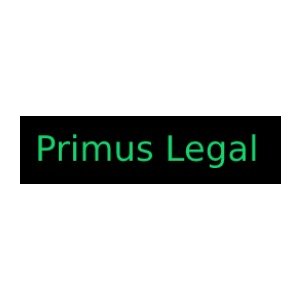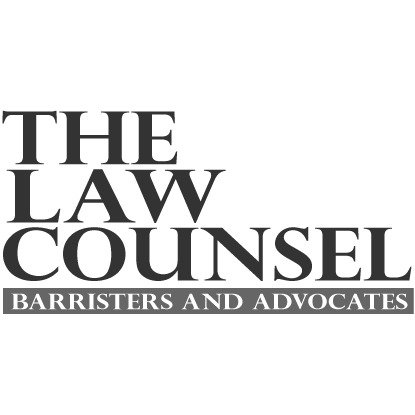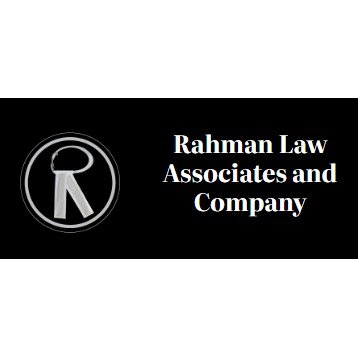Best Energy, Environment & ESG Lawyers in Bangladesh
Share your needs with us, get contacted by law firms.
Free. Takes 2 min.
Or refine your search by selecting a city:
List of the best lawyers in Bangladesh
About Energy, Environment & ESG Law in Bangladesh
Energy, Environment, and ESG (Environmental, Social, and Governance) law in Bangladesh is an emerging and vital field that governs how individuals, corporations, and government entities interact with the environment, utilize energy resources, and uphold corporate social responsibility. As Bangladesh continues to develop industrially and economically, the balance between sustainable growth and environmental protection has become increasingly important. The legal framework in Bangladesh covers areas such as energy production and distribution, pollution control, waste management, climate obligations, and the new focus on ESG principles within corporate governance. These laws aim to ensure that development does not come at the expense of environmental degradation, human rights, or ethical business practices.
Why You May Need a Lawyer
Legal issues in the field of Energy, Environment, and ESG can be complicated due to the involvement of multiple laws, technical regulations, and frequent policy changes. You may need a lawyer in the following situations:
- Starting or operating a business involved in electricity, gas, oil, or renewable energy projects
- Seeking permits or approvals for construction or industrial activity that may affect the environment
- Facing government actions, such as inspections, compliance orders, or environmental fines
- Handling disputes with regulatory authorities, local communities, or other businesses regarding environmental impact or energy use
- Involvement in projects requiring Environmental Impact Assessments (EIA) or Environmental Clearance Certificate (ECC)
- Developing or implementing ESG policies for corporate governance or seeking to meet international standards
- Pursuing legal remedies for environmental damage or being accused of environmental violations
- Understanding cross-border issues related to energy infrastructure or investment
Local Laws Overview
Bangladesh has enacted several laws and regulations to manage its energy sector, protect the environment, and promote responsible business conduct. Some of the key legal instruments and authorities include:
- Energy Laws: The Bangladesh Energy Regulatory Commission Act 2003 establishes the main regulatory body for electricity, gas, and energy tariffs. The Electricity Act 1910 and related amendments provide the legal basis for electrical infrastructure and consumer rights. There are also policies addressing renewable energy and energy efficiency.
- Environment Laws: The Bangladesh Environment Conservation Act 1995 (ECA) and its rules provide for the protection and improvement of the environment. The Act covers environmental clearance, pollution control, management of hazardous waste, and penalties for violations. The Department of Environment is the primary enforcing agency.
- ESG Laws and Practices: While ESG is not comprehensively legislated as a single topic, several regulations touch upon ESG issues. The Companies Act 1994 requires corporate transparency and responsible governance. Stock exchanges have published guidelines on sustainability reporting and ESG disclosure for listed companies. Labor and human rights laws are also relevant under the social and governance aspects of ESG.
Compliance with these laws often requires specialized knowledge, especially as Bangladesh aligns more with international standards and obligations under climate change treaties.
Frequently Asked Questions
What is an Environmental Clearance Certificate and when is it required?
An Environmental Clearance Certificate (ECC) is a mandatory permit issued by the Department of Environment for any industrial project, development work, or activity that may impact the environment. It is required before starting construction or operations, and the process often includes submitting an Environmental Impact Assessment (EIA) report.
Do renewable energy projects have different legal requirements in Bangladesh?
Yes, renewable energy projects such as solar, wind, or biogas have specific policies and incentive schemes but must comply with general energy and environmental laws. Permits, grid connection agreements, and environmental clearances are commonly required.
How does the law address industrial pollution?
The Environment Conservation Act prohibits discharge of pollutants beyond standard limits and requires industries to adopt pollution control technologies. Violators can face fines, closure orders, or even imprisonment for serious breaches.
What are the main regulatory bodies for energy and environment?
The Bangladesh Energy Regulatory Commission oversees energy sector regulations. The Department of Environment administers environmental laws. Other relevant bodies include the Ministry of Power, Energy, and Mineral Resources, and the Sustainable and Renewable Energy Development Authority.
Are ESG disclosures mandatory for companies in Bangladesh?
ESG disclosures are not uniformly mandatory, but listed companies are encouraged and in some cases required to report on sustainability and corporate governance issues as per stock exchange guidelines and international best practices.
Can individuals or communities take action against environmental harm?
Yes, individuals and communities have rights under environmental law to report violations and seek legal remedies, including compensation for environmental damage or health risks.
What penalties exist for breaching environmental laws?
Penalties for violating environmental laws can include fines, cancellation of permits, suspension of operations, or criminal prosecution, depending on the seriousness of the offense.
What role does an Environmental Impact Assessment play?
An Environmental Impact Assessment (EIA) analyzes the possible effects of a proposed project on the environment and is often a prerequisite for obtaining necessary government approvals and permits.
How can foreign investors ensure compliance with Bangladesh's energy and environmental laws?
Foreign investors should conduct due diligence, seek legal advice, and comply with all local regulations concerning project approvals, environmental protection, and corporate governance. Engaging with local legal experts is highly recommended.
What are the challenges in implementing ESG standards in Bangladesh?
Key challenges include lack of awareness, evolving regulations, limited enforcement mechanisms, and the need for capacity building within companies to adopt best practices in environment, social responsibility, and governance.
Additional Resources
The following organizations and government bodies are important resources for information and guidance on energy, environment, and ESG issues in Bangladesh:
- Department of Environment (DoE) - for environmental permits, compliance, and policy updates
- Bangladesh Energy Regulatory Commission (BERC) - for industry regulation and consumer rights
- Ministry of Power, Energy, and Mineral Resources
- Sustainable and Renewable Energy Development Authority (SREDA)
- Bangladesh Securities and Exchange Commission - for ESG reporting guidelines
- Bangladesh Environmental Lawyers Association (BELA) - for public interest legal support
- Local and international law firms specializing in energy and environmental law
Next Steps
If you need legal assistance related to energy, environment, or ESG matters in Bangladesh, consider the following steps:
- Identify the specific issue or legal need - such as a permit application, dispute, or compliance concern
- Collect all relevant documents, contracts, and correspondence
- Consult with a lawyer or law firm that specializes in energy, environment, or corporate law
- Reach out to relevant regulatory or government bodies for initial information or official guidelines
- Stay updated on legal developments and ensure ongoing compliance with legal obligations
- If facing urgent enforcement action, seek immediate legal advice to protect your rights
By seeking professional advice early and maintaining open communication with authorities, individuals and companies can reduce legal risks and contribute to sustainable development in Bangladesh.
Lawzana helps you find the best lawyers and law firms in Bangladesh through a curated and pre-screened list of qualified legal professionals. Our platform offers rankings and detailed profiles of attorneys and law firms, allowing you to compare based on practice areas, including Energy, Environment & ESG, experience, and client feedback.
Each profile includes a description of the firm's areas of practice, client reviews, team members and partners, year of establishment, spoken languages, office locations, contact information, social media presence, and any published articles or resources. Most firms on our platform speak English and are experienced in both local and international legal matters.
Get a quote from top-rated law firms in Bangladesh — quickly, securely, and without unnecessary hassle.
Disclaimer:
The information provided on this page is for general informational purposes only and does not constitute legal advice. While we strive to ensure the accuracy and relevance of the content, legal information may change over time, and interpretations of the law can vary. You should always consult with a qualified legal professional for advice specific to your situation.
We disclaim all liability for actions taken or not taken based on the content of this page. If you believe any information is incorrect or outdated, please contact us, and we will review and update it where appropriate.
Browse energy, environment & esg law firms by service in Bangladesh
Bangladesh Attorneys in related practice areas.
Browse energy, environment & esg law firms by city in Bangladesh
Refine your search by selecting a city.

















